May 20, 1983: Holmes vs Witherspoon
The career of heavyweight champion Larry Holmes is, among other things, a study in frustration.
First, there was the struggle to establish himself as a serious contender in the heavyweight division while working as a sparring partner for Joe Frazier and Muhammad Ali. At that time, even his manager, Don King, didn’t think that much of Holmes’ abilities. Then, after defeating Earnie Shavers and Ken Norton and winning the WBC championship in 1978, the challenge was to prove himself to the public as a worthy titleholder, as a champion to be respected as much as any other.
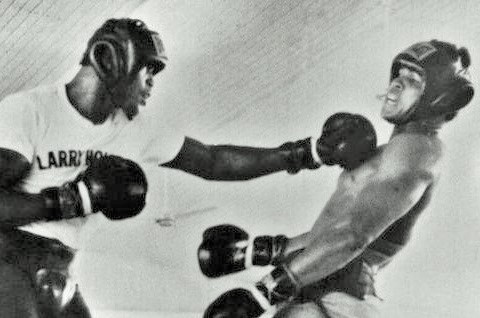
But Holmes was assuming the position recently surrendered by none other than his former boss and a living legend, Ali. After all the years of toil and striving for recognition, the new champion found himself standing not in the limelight, but in the shadow of “The Greatest.”
The comparisons were inevitable and unfair and resulted in Holmes being seen by many as a pale imitation of Ali, a poor man’s substitute, lacking in every way. Demolishing the spent, empty shell of Ali in ten rounds in the autumn of 1980 only caused the public to resent Holmes even more. The champion understood the situation but could not resign himself to it. He became embittered and seemingly took little pleasure in his status or his accomplishments. After his victory over Gerry Cooney in 1982, arguably the high point of his entire career, he was petulant, barking at reporters during the post-fight press conference, demanding to know when he would finally receive his “just due.”

Following the Cooney fight, Larry Holmes assumed an unofficial policy that could be basically summed up as, “To hell with everyone.” He decided from now on he would not face the toughest opponents, the ones most deserving of a chance at the title, but instead those he was certain he could defeat with little trouble. No rematch with Mike Weaver. No title defenses against Greg Page or Michael Dokes. Instead, Randall “Tex” Cobb; Lucien Rodriguez; Scott Frank; Marvis Frazier. None had a hope of defeating a boxer as gifted and skilled as Holmes. And Larry, after everything he’d gone through, liked it that way.
It was the same situation on May 20, 1983, when Holmes stepped into the ring to take on a young, unproven contender, Tim Witherspoon. No one knew much about the 25-year-old challenger, other than he had an awful nickname (“Terrible Tim”) and a grand total of 15 bouts on his record. No one expected anything but another easy win for the champion. How delighted they were when the unexpected took place.
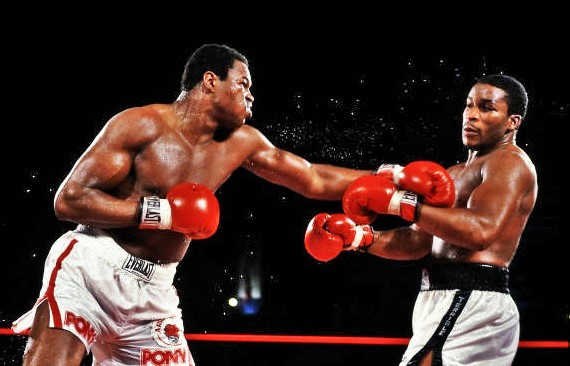
Witherspoon proved to be more than up to the task of giving Holmes a serious challenge. At ring center, after receiving the instructions from the referee, Witherspoon looked Holmes in the eye and with the brimming bravado of youth declared, “I got you now.” He fearlessly exchanged sharp jabs with Holmes and dug hard right hands to the aging champion’s midsection, backing him up, forcing him to compete at a pace and a level of intensity that Holmes had not had to deal with since his war with Ken Norton in 1978. Holmes vs Witherspoon turned into one of the best heavyweight fights anyone had seen in years, both men giving an impressive exhibition of courage and boxing skill. For eight rounds it was deadly close, neither man having a decided edge. And in the ninth, one of the great action rounds in heavyweight history, the unheralded challenger had Holmes on the brink of a stoppage defeat.
Expectations have a way of shaping our perceptions. No one anticipated Witherspoon giving Holmes such a tough, close battle, and so when the fight went the twelve round distance and the champion retained his title by split decision, many, caught up in the excitement of “Terrible Tim’s” unexpectedly brave challenge, cried foul, insisting Witherspoon had been robbed. Not the case. Holmes acquitted himself well and at best Witherspoon deserved a draw. And hindsight shows us that, instead of Holmes underachieving against an unproven youngster, the fight was in fact a high point in Larry’s long career. Witherspoon would establish himself as one of the best heavyweights of the 1980s. His performance against Holmes is arguably his finest.
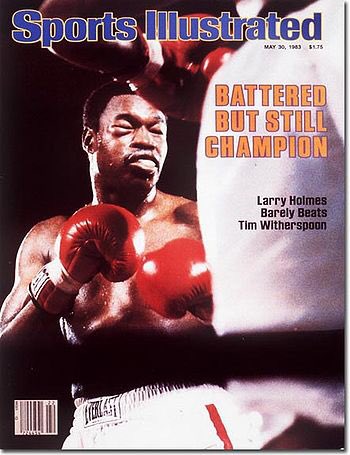
But he never received a rematch and Holmes would continue to pursue his chosen course of avoiding the toughest battles and the most deserving contenders, enjoying what he regarded as the privileges of an elder champion. It caught up with him two years later when he defended his title against Michael Spinks. Larry Holmes, unquestionably one of the all-time greats, nonetheless remains the lone heavyweight titleholder in boxing history to lose his belt to a light heavyweight champion. – Michael Carbert

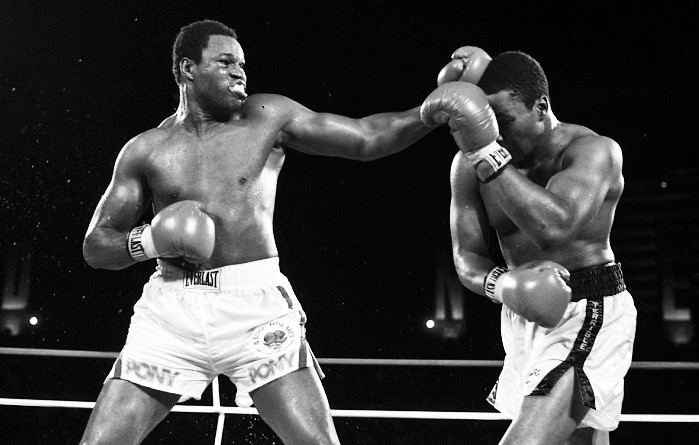



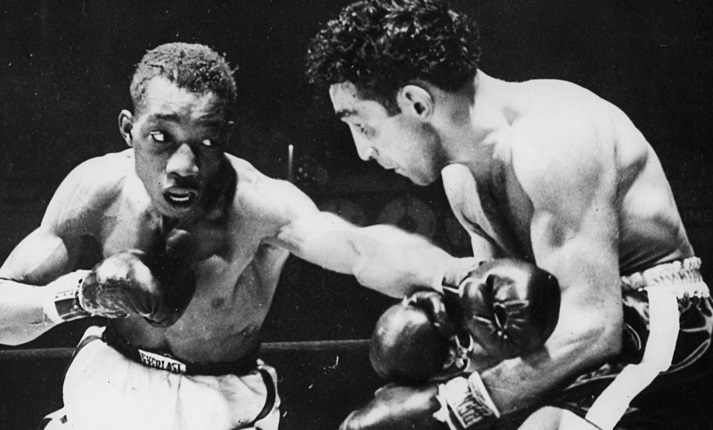
Interesting fight between two former sparring partners of Muhammad Ali. Witherspoon said in his book, that Ali gave him the “Terrible” nickname. There’s one thing that both fighters can agree upon…The late, great Ali paid his sparring partners top dollar, and they both appreciated that and were grateful for the big break they got later in their careers because of him.
Roy Jones would later accomplish the same feat as Spinks, a light heavyweight champ defeating a heavyweight champ.
True, but it’s so difficult to regard John Ruiz as a legitimate heavyweight champion.
Ruiz wasn’t linear champion. Just had an alphabet belt. Spinks beat the legit linear champ.
You could say Michael Moorer accomplished the feat, but he was only a belt holder at light heavyweight. He was never the best light heavyweight when he was roaming that division.
I’m sick of this crap!
This author sounds like he’s a Larry Holmes hater. I’m an avid boxing fan and I remember witnessing Holmes’ championship reign and he was never given his “just due “. He fought all comers up to a point. That point was when he realized that writers such as this would never give him the respect he deserved no matter who he fought. He realized the reward was not worth the risk.